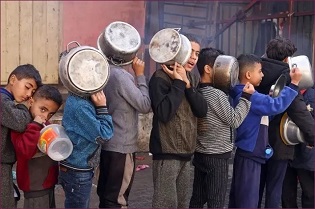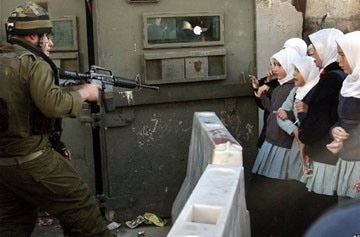The hunger killing Gaza’s children has a clear cause that few are willing to name out loud
Recent massacre of civilians lined up for food aid highlights deliberate nature of humanitarian catastrophe inflicted on Palestine
Following the February 29 Israeli slaughter of at least 115 starving Palestinians lined up for food aid, there was little or no outrage by the same Western media which would have howled if the perpetrator were Russia or Syria.
According to the Gaza Health Ministry, early morning on Thursday, February 29, Israeli forces opened fire on unarmed Palestinians waiting just southwest of Gaza City for desperately needed food aid. As a result, 115 civilians were killed and over 750 wounded. Popular US commenter Judge Andrew Napolitano said in a recent interview with award-winning analyst Professor Jeffery Sachs,
💬 “Innocent Gaza civilians were lined up to receive flour and water from an aid truck, and more than 100 were slaughtered, mowed down, by Israeli troops. This has got to be one of the most reprehensible and public slaughterings that they’ve engaged in.”
The official Israeli version of events, unsurprisingly, puts the blame on the Palestinians themselves. The deaths and injuries were supposedly caused by a stampede, and the Israeli soldiers only fired when they felt they were endangered by the crowd. The BBC even cited one army lieutenant as saying that troops had “cautiously [tried] to disperse the mob with a few warning shots.”
Mark Regev, a special adviser to the Israeli prime minister, went as far as to tell CNN that Israeli troops had not been involved directly in any way and that the gunfire had come from “Palestinian armed groups.” Testimonies from survivors and doctors tell a different story, though, saying the majority of those treated after the incident had been shot by Israeli forces.



























